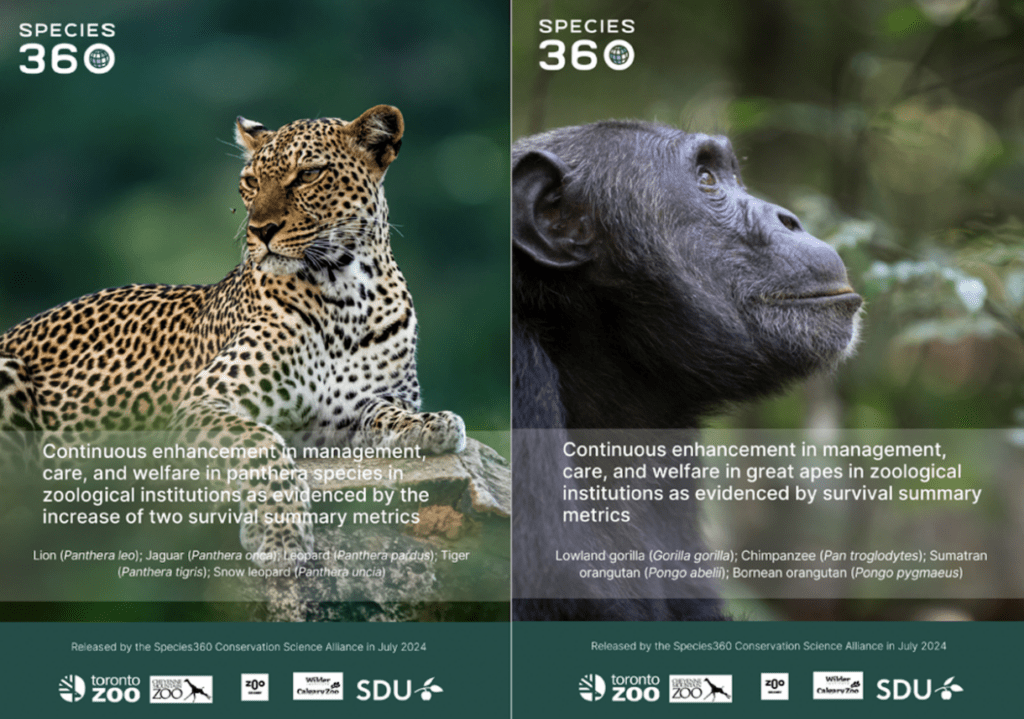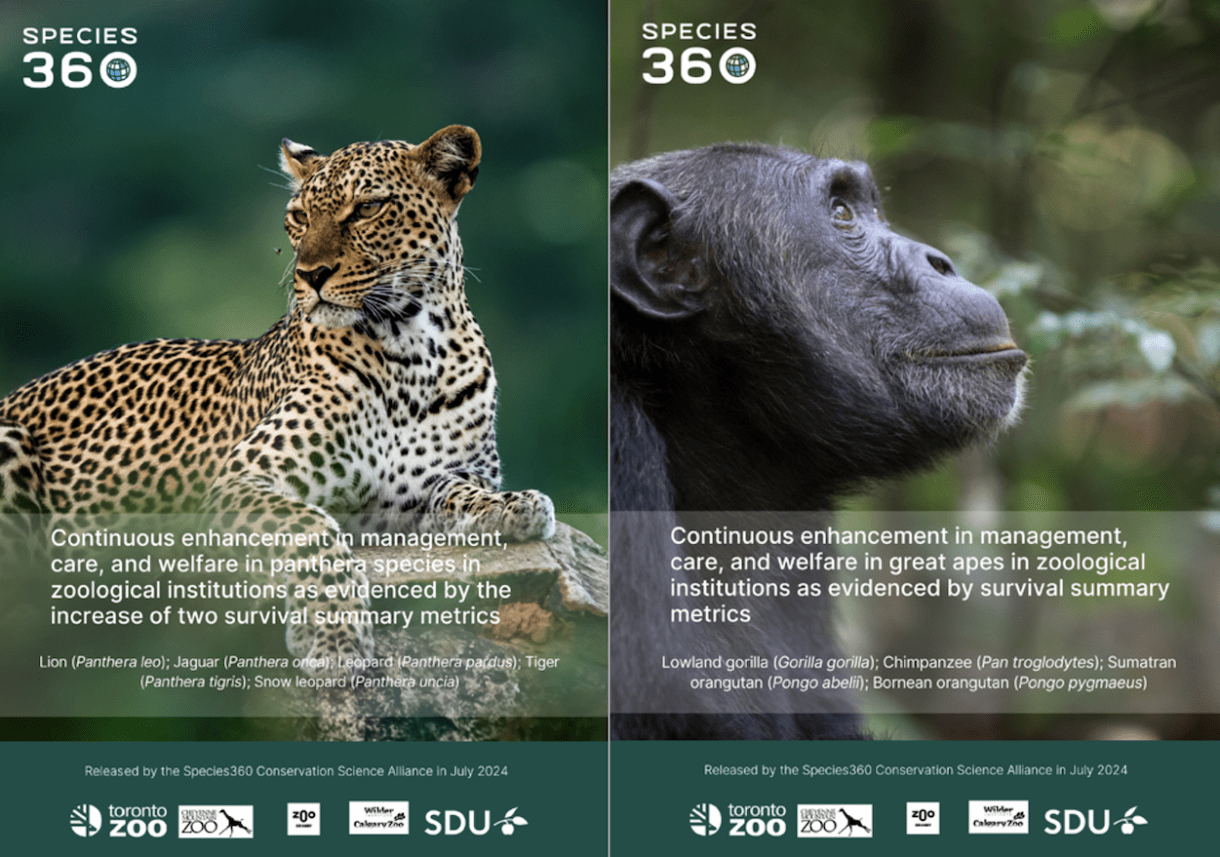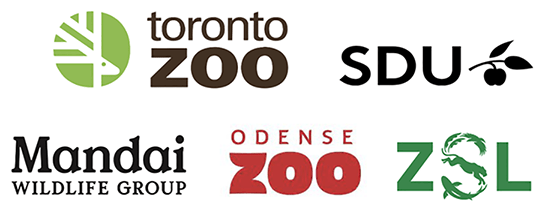
By: Dr. Morgane Tidière.
In July, the Species360 Conservation Science Alliance (CSA) released two reports showcasing significant improvements in life expectancy and lifespan equality for Panthera and great apes in zoological institutions from the early 1800s to 2023. In addition to a statistical analysis showing an increase in a population-welfare indicator, these reports highlights various improvements in animal care and welfare made by zoological institutions over the past century, which likely explain the observed trends in the reports.
Survival-related metrics are commonly used as a proxy of population-level welfare as studies have reported that happier and healthier individuals live longer. Here, we studied the change in two key survival summary metrics – the life expectancy and the lifespan equality of a population – proved to be a reliable proxy of population welfare in human and non-human animals (for example, see our previous research on the improvement of population welfare in zoological institutions for four marine mammal species, Tidière et al. 2023).
The reports emphasize advancements in husbandry and management practices made by accredited zoological institutions over the past century for five Panthera species—lion (Panthera leo), jaguar (P. onca), leopard (P. pardus), tiger (P. tigris), and snow leopard (P. uncia)—and four great ape species—lowland gorilla (Gorilla gorilla), chimpanzee (Pan troglodytes), Sumatran orangutan (Pongo abelii), and Bornean orangutan (Pongo pygmaeus). These improvements are evident in the significant increase in life expectancy and lifespan equality of these species. For example, chimpanzees’ average life expectancy has increased from approximately seven years in the early 1900s to around 30 years today—a 4.3-fold improvement in 100 years. This underscores the proactive behaviour of accredited institutions in constantly improving their management practices.
While improvements in life expectancy and lifespan equality reflect positive changes in living conditions and overall welfare, they do not alone guarantee individual welfare. Each animal’s unique experience and personality may affect how well they thrive under improved conditions. Therefore, it remains crucial to focus on individual welfare to ensure all animals benefit from enhanced care standards. Rigorously capturing data on individual welfare, as done in the ZIMS Care & Welfare module, is vital for improving the quality of life for animals in zoological institutions.
Ensuring the survival of threatened species requires a multifaceted approach. Accredited zoological institutions are at the forefront of this effort, bridging the gap between the wild and human society to preserve biodiversity. This research contributes to the ongoing discourse on animal welfare and may inform future policy decisions, underscoring the importance of biology-informed husbandry, resource investment, and scientific research.
A collaborative effort within the Conservation Science Alliance
The reports are the result of intensive collaboration within the Species360 Conservation Science Alliance, involving over 20 experts for Panthera and 30 experts for great apes from 12 countries and six regional associations, as well as experts from the International Union for Conservation of Nature (IUCN). These reports resulted from the discussions held during the Species360 Experts Online Workshops on the ‘progressive changes in care and welfare of Panthera and great apes since the early 1800s’ which took place at the end of 2023. The workshops were organized and led by Dr Morgane Tidière and Dr Sandra E. Trautwein, with help from Hannah Jenkins and Rikke Ø. Nielsen, from the Species360 Conservation Department.
For these works, Dr. Morgane Tidière, leading the research and writing the reports, was sponsored by Toronto Zoo, Cheyenne Mountain Zoo, Wilder Institute/Calgary Zoo, and Zoo de Granby. The participating experts provided their input pro bono. We are incredibly grateful for the support of these organizations in making these reports possible.
These reports may be cited as:
Panthera species: Conservation Science Alliance (2024) Continuous enhancement in management, care, and welfare in Panthera species in zoological institutions as evidenced by the increase of two survival summary metrics. Species360. 30pp. DOI: 10.5281/zenodo.12721991
Great apes: Conservation Science Alliance (2024) Continuous enhancement in management, care, and welfare in great apes in zoological institutions as evidenced by survival summary metrics. Species360. 32pp. DOI: 10.5281/zenodo.12721612
These reports are available upon request to the co-authors or directly to the Conservation Science Alliance (support@species360.org). The full text of these reports will be made publicly available in January 2025.








